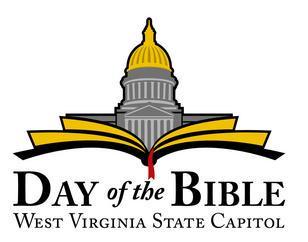West Virginians Don’t Believe W.Va.’s K-12 System is Preparing Students for Work & Life
Education is foundational to securing meaningful employment and experiencing social mobility.

Less than half (46%) of West Virginians believe that the state’s K–12 system prepares people for a successful life and career.
That’s what I recently learned from conducting listening research, including a statewide poll of 765 registered voters in West Virginia, with Cardinal’s Director of Policy & Research, Dr. Jessi Troyan, to discover what West Virginians think about barriers to work, economic opportunity, and the social safety net in their state.
They believe our poor education system is one of the biggest barriers to success. And they’re right.
According to the Nation’s Report Card (NAEP), in 2022, West Virginia’s students saw significant decreases in their performance in both reading and mathematics from the previous year’s test. Only 22% of West Virginia’s fourth-grade students performed at or above proficient on the reading portion of the exam and only 22% of eighth-grade students performed at or above proficient on the reading portion of the exam.
Mathematics wasn’t any better. In fourth grade, only 23% of West Virginia’s students performed at or above proficient, and by eighth grade only 15% performed at or above proficient.

Despite these abysmal scores, West Virginia’s K-12 public school system still boasted a 91.2% graduation rate for the 2021–2022 academic year. Compare this to reports that show that nearly one-third of all of West Virginia’s college students — community college and four-year universities — have to take remedial courses. Thousands of students are leaving the school system unprepared.
This isn’t just bad news for students’ ability to succeed in college though. Education is foundational to securing meaningful employment and experiencing social mobility.
The Archbridge Institute recently published a Social Mobility in the 50 States Index.
West Virginia scored 42nd overall — with 1st being the best.
A closer look at the index’s subcategories shows education is at the root of the problem. The Institute’s research takes into account several factors that impact an individual’s ability to better themselves: entrepreneurship and growth, institutions and rule of law, education and skills development, and social capital. The research authors say about education and skills development, “If labor markets and a job are the main way people climb the income ladder, then education is how people develop the necessary skills for employment.”
West Virginia ranked 34th out of 50 in education.
If we want West Virginians to find purposeful employment and build their American Dream, it is vital to provide sufficient opportunities for high-quality education.
If West Virginia policymakers want to improve opportunity for all Mountaineers, they must take a hard look at the state’s K-12 system and the barriers standing between individuals and social mobility.
One way policymakers can improve the quality of West Virginia’s K-12 education system is by continuing to expand education freedom.
Of 31 systematic reviews and meta-analyses studying school choice programs across the country, 24 indicated that outcomes lean positive. The other seven analyses indicate that overall findings were neutral, mixed, or inconclusive. These studies looked at outcomes such as participant test scores, competition, attainment, integration, civic values, fiscal effects, and school safety. No research review indicated an overall negative effect of private educational choice.
Policymakers are on the right track by legalizing charter schools and creating the Hope Scholarship. But the work to improve education freedom and quality in West Virginia isn’t done yet.
Policymakers could continue this path by improving open enrollment laws to allow public schools to serve all students. They could create stackable tax-credit scholarships to support special needs students educated outside of the public school system. They could even revisit West Virginia’s Innovation Zone law to allow schools more local control and entrepreneurial freedom in educating students.
Don’t grow tired of expanding education freedom in West Virginia. The future of the Mountain State depends on our ability to provide high-quality educational options, and the freedom to choose among them, for all Mountaineers.

Amanda Kieffer
Amanda Kieffer is a Young Voices Social Mobility Fellow and the VP of Communications & Strategy for the Cardinal Institute for WV Policy.
















